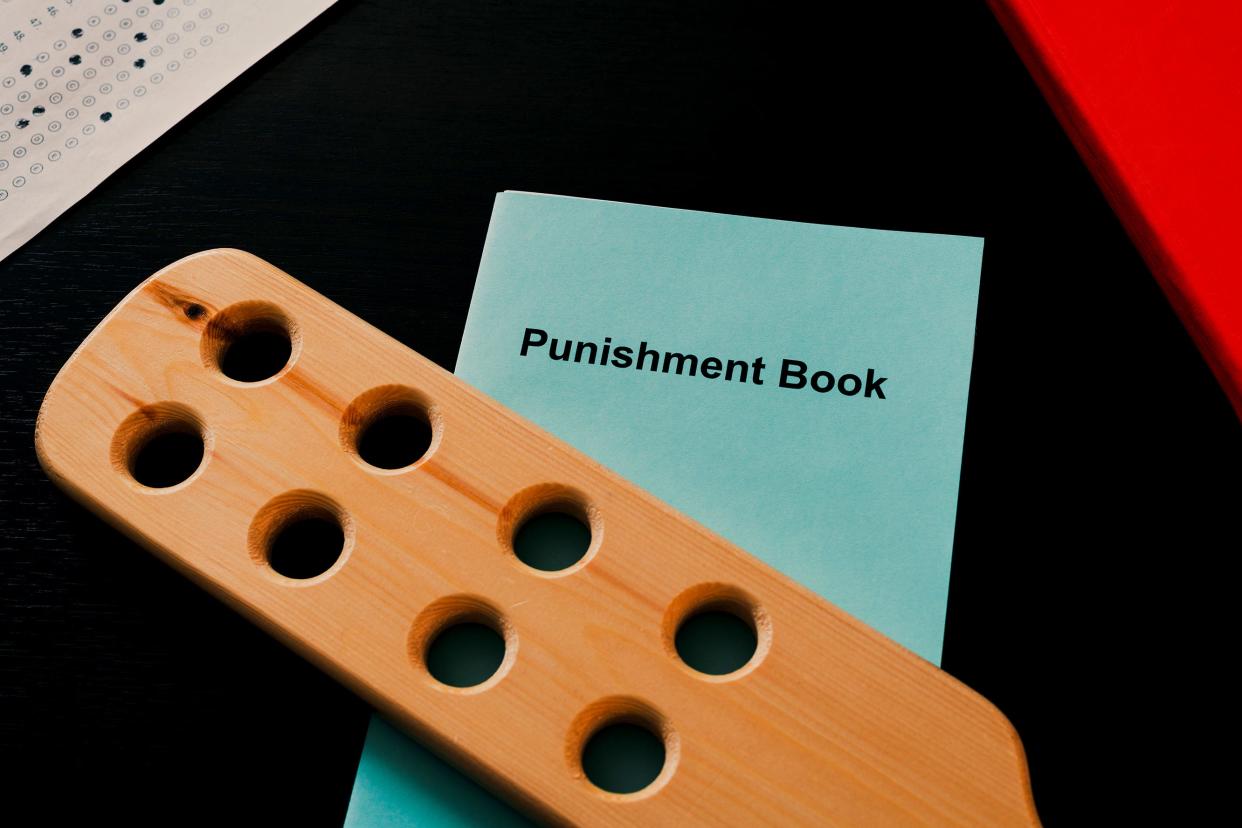Oklahomans should now know that corporal punishment harms kids

With all the misinformation, disinformation and false narratives these days, it’s hard to tell fact from fiction. But one thing has been clear for a very long time: Corporal punishment is harmful to kids.
That’s why, in the past year, Idaho and Colorado banned the use of corporal punishment in their public schools. And why there is pending legislation — House Bill 1028 — aimed at banning the practice in Oklahoma’s schools, as well.
Something else is also quite clear. In Oklahoma, corporal punishment is used disproportionately on Native students and students with disabilities.
At the interim study hearing held in October at the Oklahoma House, there was consensus among experts that corporal punishment is ineffective and potentially harmful, and that there are better, safer alternatives. Additionally, Oklahoma school attorney Andrea Kunkel stated that, regardless of the current technical legality of corporal punishment, schools are advised against using the practice, pointing to the legal risks to educators personally and schools organizationally.
The pending legislation has significant implications for Oklahoma’s students and their teachers. One of the leading opponents of the bill, state Rep. Randy Randleman, published an op-ed in the Midland Reporter-Telegram explaining the rationale for his stance: a.) The Bible supports the use of corporal punishment; b.) While he would never use corporal punishment on children “facing an emotional or neurological problem… [he] would use corporal punishment if this is a technique that the parent wanted as their choice;” c.) He has significant practical and research expertise on behavioral management of children, including his doctoral dissertation, and knows that corporal punishment is needed in some instances; and d.) “We don’t need legislators deciding how schools and parents should manage children.” We are puzzled by Rep. Randleman’s position for several reasons.
First, we have read Rep. Randleman’s dissertation. It was not about corporal punishment. It explored alternatives to punitive and exclusionary discipline and showed that such alternatives are effective.
Second, there is no research suggesting that corporal punishment is effective at improving student behaviors. We assume that Rep. Randleman ― as a licensed psychologist — is familiar with such research, and are therefore surprised — given the ethical principles of psychologists governing the accurate reporting of research — that he would support corporal punishment under any circumstances.
Third, if corporal punishment is harmful and ineffective, we are puzzled that Rep. Randleman would support its use when schools and parents want to use it. There are countless precedents for the government taking action to ban harmful practices.
And, finally, there is significant debate about whether the Bible actually supports the use of corporal punishment, with many clergy arguing that it does not. Along these lines, it is noteworthy that one of the sponsors of House Bill 1028 — Rep. John Talley — is an ordained minister.
The Rev. Shannon Fleck, of the Oklahoma Faith Network, recently shared with The Oklahoman: “The Bible shouldn’t be used to legislate.” Fleck said Scripture should never be used to justify violence. “There is enough violence in the world.”
Rep. Randleman correctly asserts that a small minority of children in a classroom account for a majority of discipline referrals and actions in schools, that schools are not sure how to handle the behavioral issues of these students, and that it is important to have services available to help these districts. So, we are most puzzled that he’s not taking the lead on infusing evidence-based alternative practices into Oklahoma’s schools and eliminating the practices that are most harmful.


Ross Greene, Ph.D., is founding director of the nonprofit Lives in the Balance and adjunct professor in the Department of Psychology at Virginia Tech and in the Faculty of Science at University of Technology Sydney. Ben Jones, J.D., is the director of legal and policy initiatives at Lives in the Balance.
This article originally appeared on Oklahoman: Guests: Oklahomans should know that corporal punishment harms kids

